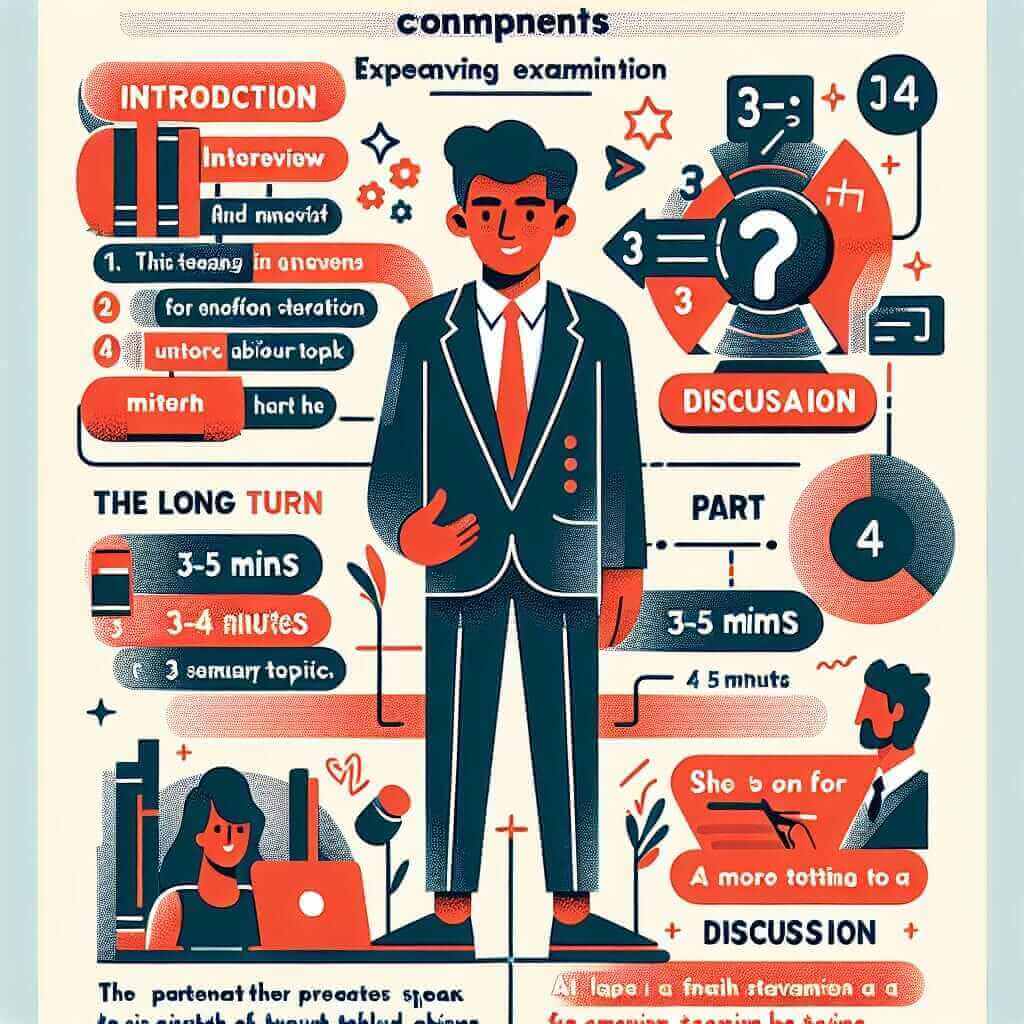The IELTS Speaking test is often a source of anxiety for test-takers, with many wondering about its format and duration. Understanding the test’s structure and time constraints is crucial for effective preparation. This article will delve into the duration of the IELTS Speaking test, providing valuable insights and tips to help you feel confident on exam day.
Breaking Down the IELTS Speaking Test Duration
The IELTS Speaking test is a one-on-one interview with a certified examiner and is the same for both the IELTS Academic and IELTS General Training modules. It is divided into three parts:
Part 1: Introduction and Interview (4-5 minutes)
This section involves general questions about yourself, your hobbies, interests, and familiar topics like work or study.
Example Questions:
- What’s your hometown famous for?
- Do you prefer reading books or watching movies?
- What do you find enjoyable about learning English?
Part 2: Individual Long Turn (3-4 minutes)
Here, you receive a cue card with a specific topic. You have one minute to prepare your thoughts and then speak for up to two minutes on the given topic. The examiner might ask one or two follow-up questions related to your talk.
Example Cue Card:
Describe a time you received good news.
You should say:
- What the good news was
- When and where you received it
- Who you were with
- And explain how you felt about it.
Part 3: Two-Way Discussion (4-5 minutes)
This final part involves a more in-depth discussion related to the topic in Part 2. The examiner will engage you in a conversation, asking more abstract and thought-provoking questions.
Example Questions:
- How do people in your culture usually celebrate good news?
- Do you think it’s important to share good news with others? Why?
- How has technology changed the way we receive and share news?
 IELTS Speaking Test Structure
IELTS Speaking Test Structure
Total IELTS Speaking Test Duration: 11-14 minutes
In total, the IELTS Speaking test lasts between 11 and 14 minutes. While the test duration is relatively short, it’s essential to use your time effectively to showcase your English language proficiency.
Common Mistakes to Avoid
- Rushing through answers: Speaking at a natural pace and providing well-developed responses is crucial.
- Memorizing answers: Examiners can easily detect memorized responses. Focus on communicating your ideas fluently and spontaneously.
- Using overly complex vocabulary incorrectly: While a strong vocabulary is advantageous, prioritize clarity and accuracy over complex language.
Tips for Effective Time Management during the IELTS Speaking Test
- Practice speaking under timed conditions: Simulate the test environment by recording yourself and answering practice questions within the time limits.
- Use the preparation time wisely: For Part 2, jot down key points instead of writing out your entire speech.
- Be concise and relevant: Stay focused on the question asked and avoid going off-topic.
- Don’t be afraid to ask for clarification: If you’re unsure about a question, politely ask the examiner to repeat or rephrase it.
Conclusion
Understanding the IELTS Speaking test duration and its different parts is essential for successful preparation. By familiarizing yourself with the test format, practicing regularly, and implementing the tips provided, you can approach the speaking test with greater confidence and demonstrate your English language abilities effectively. Good luck!


